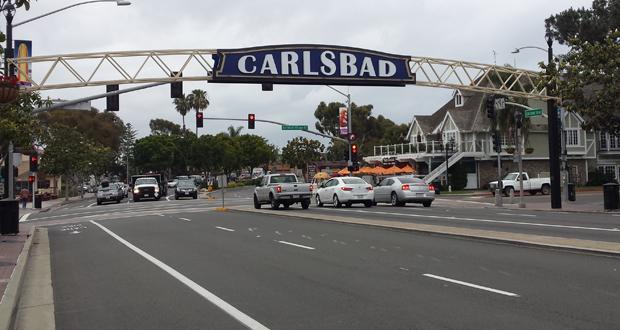Carlsbad CA— The City of Carlsbad has revised existing regulations to clarify that short-term vacation rentals are not allowed outside the city’s coastal zone, and has adopted a new permitting system that requires owners of such rentals within the coastal zone to abide by a set of new rules designed to protect neighbors from potential abuses.
The coastal zone includes parts of the 92008 and 92011 ZIP codes. Properties east of El Camino Real or in the 92010 and 92009 ZIP codes are outside the coastal zone. Owners can check whether a specific property is in the coastal zone by entering the address on the city zoning map, or by calling 760-602-2403.
The California Coastal Commission, which governs land use in the coastal zone, has ruled that short-term vacation rentals enable greater access to the coast and therefore should be allowed. The City Council decided to limit the rentals to just the coastal zone because of concerns about their possible negative effects on the quality of life of residential neighborhoods east of the coastal zone boundary.
The new measures, adopted by the City Council on Tuesday, May 5, enable the city to enforce regulations and collect transient occupancy taxes and Carlsbad Tourism Business Improvement District fees from owners of vacation rental properties. The transient occupancy tax is 10 percent, and the Tourism Business Improvement District assessment is $1 per rented room or unit per night.
Short-term vacation rentals are private residences that owners rent either in whole or in part to vacationers for a period of fewer than 30 days. Staff has determined that as many as 400 such rentals currently operate in Carlsbad, despite a long-standing official ban. The growth of online sites where residents can advertise their homes as short-term rentals has aided in their proliferation.
Assistant City Manager Gary Barberio said, “The vast majority of these vacation rentals operate without any perceived problems, and we believe that by establishing a program requiring a permit, the vast majority of existing rentals will voluntarily come into the program.”
Barberio noted that some of the properties have business licenses to operate as short-term vacation rentals and pay the transient occupancy tax, despite the city ban.
Last year the City Council directed staff to study short-term vacation rentals and research how other cities address the issue. Staff learned that short-term vacation rentals exist in other California cities, even where they’re officially banned. The city also conducted public outreach to gather information from residents and other interested parties. On April 21 the council introduced an ordinance regulating short-term vacation rentals and permitting them only in the coastal zone, which makes up 37 percent of the city
The measure, which takes effect on June 4, has several provisions, including:
- Owners will be required to obtain a business license and a short-term vacation rental permit. The license requires a fee, but the permit will be free.
- Owners/operators must acknowledge that they are responsible for complying with any homeowners association rules that ban short-term vacation rentals.
- Rental residences must post a local contact for neighbors to call in case of problems, and that contact must respond within 45 minutes, and keep that notice on display at all times of day.
- Occupancy is limited to two persons per bedroom plus one. For example, a two-bedroom residence would be limited to no more than five occupants.
- The owners and occupants must acknowledge receipt of Good Neighbor Guidelines, which cover such issues as noise, trash, parking and oversize vehicles.
Violations of the new ordinance regulating short-term vacation rentals would constitute a misdemeanor offense, giving the city strict enforcement powers over illegal rentals and properties that don’t obey the rules.
Property owners can apply for a permit in person at the City of Carlsbad Finance Department at 1635 Faraday Ave., Carlsbad, or on the city website, www.carlsbadca.gov/visitors/vacationrental. The city will actively monitor short-term vacation rental activity to ensure compliance.




